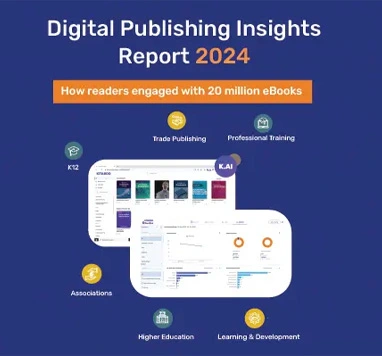
How to Streamline Instructional Data Management for Better Learning Outcomes
Educators play a crucial role in shaping the learning outcomes of students. In an era driven by technology and data, effective instructional data management is pivotal in optimizing the learning process.
It empowers you to tailor your instructional approaches and interventions, leading to enhanced student engagement and achievement.
Not only is this approach beneficial to students, but instructors gain valuable expertise and experience by tracking student data. They can see exactly which teaching methods are working and areas for enhancement.
This article provides a comprehensive framework to manage instructional data, empowering you to harness data-driven insights for improved learning outcomes.
Table of Contents:
I. Understanding the Significance of Instructional Data Management
II. 5 Best Practices to Streamline Instructional Data Management
- Embrace Technological Solutions for Data Management
- Implement Data-Driven Assessment Strategies
- Ensure Data Privacy and Security
- Facilitate Collaborative Data-Driven Decision-Making
- Cultivate a Culture of Continuous Improvement
III. Wrapping Up!
Understanding the Significance of Instructional Data Management
In modern educational settings, instructional data management serves as a powerful tool for informed decision-making. Through thorough data collection, analysis, and interpretation, you can gain valuable insights into individual learning patterns, challenges, and overall progress.
Data-driven instruction also fosters a more constructive and supportive school environment. It creates a nurturing culture where teachers and students share responsibility. As a result, students feel encouraged and supported to succeed.
Overall, this data-driven approach allows you to customize your teaching strategies, personalize learning experiences, and identify specific areas that require intervention. It also helps develop a conducive environment for enhanced academic excellence.
Managing instructional data is now easier than ever before, thanks to powerful tools like KITABOO Insight.
With user behavior analysis, content performance metrics, and content personalization, KITABOO Insight allows you to improvise the content based on student’s interests and progress.
5 Best Practices to Streamline Instructional Data Management
In today’s rapidly evolving educational landscape, the strategic handling of instructional data has emerged as a key determinant of academic success.
With the abundance of data at their disposal, educators face the challenge of implementing efficient processes to leverage this information effectively.
To end this, the adoption of best practices in instructional data management is imperative.
Here are the top 5 strategies that you can implement to streamline the instruction data management process.
1. Embrace Technological Solutions for Data Management
Leveraging cutting-edge technological solutions is crucial for enabling efficient management of instructional data.
Integration of user-friendly Learning Management Systems (LMS), Data Management Platforms (DMPs), and Educational Data Mining (EDM) tools can simplify the process of data collection and analysis.
These tools enable you to efficiently monitor student progress, track learning trajectories, and identify patterns that inform instructional strategies.
For example, KITABOO, a premier digital publishing and content delivery platform, seamlessly integrates with renowned LMSs like Moodle, Schoology, Sakai, and more.
So, when you integrate KITABOO with your current LMS, you can utilize key analytical features. This will allow you to optimize the potential of both your LMS and KITABOO.
Artificial Intelligence (AI) and Machine Learning (ML) algorithms can aid in generating predictive models. By utilizing them, you can anticipate students’ learning needs and proactively address potential challenges.
2. Implement Data-Driven Assessment Strategies
The integration of data-driven assessment strategies is integral to the process of instructional data management. By employing formative and summative assessments aligned with specific learning objectives, you can gather real-time data on student performance.
Digital assessment tools, such as online quizzes, interactive assignments, and simulations, facilitate the collection of comprehensive data sets. They enable you to assess student competencies and promptly identify areas requiring additional support.
A great example when it comes to the creation of interactive assessments is KITABOO’s AI-powered assistant. With K.AI, you can easily and quickly create MCQs, learning objectives, flashcards, and more. It makes testing students easier.
Analyzing assessment data in conjunction with learning analytics can provide you with actionable insights for refining instructional methodologies. It also helps tailor interventions to meet individual student requirements.
3. Ensure Data Privacy and Security
Maintaining data privacy and security is imperative to uphold ethical standards and safeguard sensitive student information. You must adhere to stringent data protection protocols and comply with relevant privacy regulations to ensure the confidentiality and integrity of instructional data.
It’s critical to implement robust data encryption measures, access controls, and authentication mechanisms to prevent unauthorized access and data breaches.
Here’s when KITABOO’s secured distribution and offline access services come to your rescue.
Through KITABOO’s secure cloud-based distribution, your content is DRM-protected and encrypted, accessible solely through unique access codes. Simply put, with DRM, you can restrict access to content copying and printing.
Fostering a culture of data ethics and promoting transparency regarding data usage instills trust among students, parents, and stakeholders. This helps develop a conducive learning environment.
4. Facilitate Collaborative Data-Driven Decision-Making
Collaborative data-driven decision-making nurtures collective responsibility and facilitates a multifaceted approach to managing instructional data.
Encourage collaborative engagement among teachers, administrators, and data specialists. This helps cultivate a shared understanding of data insights and facilitates the exchange of best practices.
Regular data review meetings, professional development workshops, and interdisciplinary collaboration initiatives enable stakeholders to analyze data trends synergistically.
It also allows them to exchange innovative instructional strategies and collectively develop data-informed interventions. This helps in enhancing the overall learning experience and student outcomes.
5. Cultivate a Culture of Continuous Improvement
Emphasizing a culture of continuous improvement is fundamental to the successful implementation of streamlined instructional data management practices.
Encourage instructors to engage in reflective practices, self-assessment, and ongoing professional development initiatives to create a dynamic learning environment.
Regular feedback mechanisms, self-evaluation tools, and mentorship programs facilitate the refinement of instructional methodologies. They help ensure that the teaching strategies align with evolving educational paradigms and student needs.
By nurturing a growth mindset and embracing a data-driven approach to pedagogical innovation, instructors can continually improvise their teaching practices. This helps in maximizing student engagement and promoting enduring learning outcomes.
Wrapping Up!
In conclusion, with a comprehensive understanding of instructional data management practices, you can pave the way for an inclusive and adaptive educational ecosystem.
Streamlining the data management process is an indispensable catalyst for nurturing the holistic development and academic success of every learner.
Need help with instructional data management? Collaborate with KITABOO– the world’s leading digital publishing platform. Customize your instructional content and adjust to your student’s learning preferences with KITABOO.
Explore KITABOO’s capabilities today to unveil a realm of seamless learning. Schedule a demo with us now!
To know more, write to us at KITABOO@hurix.com.
Suggested Reads:
Discover how a mobile-first training platform can help your organization.
Kitaboo is a cloud-based platform to create, deliver & track mobile-first interactive training content.






